Interview with Wayne Wonder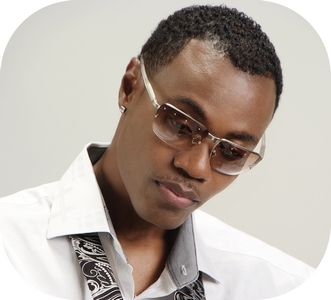
Wayne Wonder will remain eternally associated with Penthouse Records.
First artist managed by Penthouse in 1989, he recorded countless tracks for the label including an incredible number of hits.
He is an internationally recognized artist, one of the singers who will have marked the history of dancehall. (October 2020 - penthouserecords.free.fr) |
|
Like many Jamaican you started singing in church when you were young. What did this experience bring you ? The whole church thing itís where I started exercising my vocals. My mom was in the choir and I was with her when she was practising night after night, I just start singing also. My parents were not into reggae because they were christians but I always got support from my mom. Tell us about your earlier days in reggae music industry. I was still in school when King Tubby recorded my first song "Never Gonna Give You Up", a cover of Rick Ashley, in early 1988. I was introduced to King Tubby by Singing Melody. Before I started recording, in early 1987, I was singing in sound systems like Youth High Power, Qulitex, Ovation, Big R, Metro MediaÖ I was the official Metro Media singer. It was a big sound system at the time, it was a big oportunity. I travelled around the country with this sound. I had no pressure and was excited to work with them. There were Metro Media posters all around the whole country, where my name was written with Peter Metro, Tanto Metro, JapaneseÖ Japanese was a DJ from Metro Media who introduced me to Lloyd Dennis who recorded my first album "One More Chance" for his Pick Out label in 1989. I always have to give a big shout out to Singing Melody and Japanese for getting me connected.  Wayne Wonder outside Penthouse Studio (1993 © David Corio) You recorded many covers of Jamaican and also American songs. Was it a personal choice ? In my early years, it was just a way to get in, because at the time it was just the thing. A producer might call you and in his head he just had the thing he wanted you to sing. I was in the studio as a young artist with Delroy Wilson and he told me ę I love your voice and you should do two songs from my album Ľ. He was the one who chose "Movie Star" and "Have Some Mercy". Actually I recorded the songs before they became famous with the combination versions with Buju Banton ("Bonafide Love" and "Hey Lorna"). The singer Sebastian, a good friend who passed away, always said me ę You must sing originals songs Ľ. He gave me the courage to sing my originals songs. Beres Hammond told me ę Sing your original songs like you sing the covers Ľ, that was his advice to me. 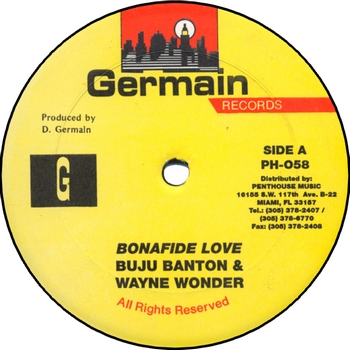 Tell us about your first step in Penthouse studio Then after recording my first album for Lloyd "Pickout" Dennis, he moved to UK. I was left without producer. Actually someone told me about that little studio, so I went to Penthouse to record. When I went to Penthouse studio at Slipe Road, Dave Kelly was there. I said ę I know this engineer, I know this youth from longtime ! Ľ. When I was recording in the studio with Dave Kelly, Germain came. He liked my energy and loved what he heard. I was one of the first Penthouse artist officialy. Dave Kelly was like my golden key, like a key to the city, weíre basically on the same endeavour, everything that came to place. The energy was so perfect and the I felt comfortable to record with him because I was like a shy kid always calm and reserved. That what we did everyday : recording in the studio and making music. 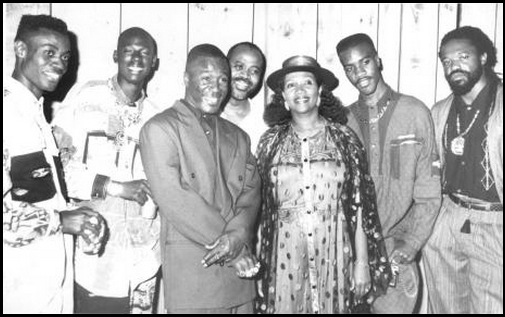 Wayne Wonder, Buju Banton, Cutty Ranks, Donovan Germain, Marcia Griffiths, Dave Kelly, Tony Rebel Do you remember your first song recorded at Penthouse ? It's two songs on the Taxi riddim : "Anything for You" and "Fast Car". The riddim was so bad, so I recorded them twice ! 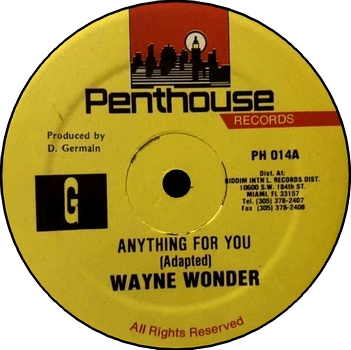 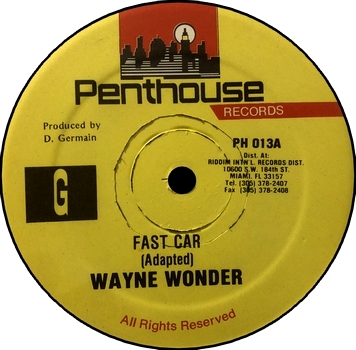 How did your friendship with Buju start ? One friday evening I went by Winston Riley and I was telling him that I had a show that night in Clarendon with Richard 'Richie B' Burgess, Frankie SlyÖ Buju Banton was here and he mashed up the place. I took him to Penthouse after the show. Then I picked him up every day. Me carried him to Dave Kelly to record. Donovan Germain came. The rest is history. We cowrote songs together like "Deportees", "Murderer", "Operation Willy" and many more.  Buju Banton, Wayne Wonder - Penthouse Studio (early 1990s © Shizuo Ishii) What is Donovan Germain's singularity comparing to other producers ? He just knows how to set the things. Basically he shows you the right way. He takes recording and the artists with serious if you want to be a long time artist. I got great advice from him. Now I live in Florida and I donít work too much with him, but I respect so much his label, all the hard work and the catalogue.. Weíve done so much work over the years. Thatís like a break that is well pit. You have recorded for Penthouse in the new recording studio but also in the first one. What are the differences between these studios ? Yes, I recorded a few songs by the new studio at Ballater. It was a total different feeling. I loved the original studio, there was something magical about it, you just canít duplicate it. 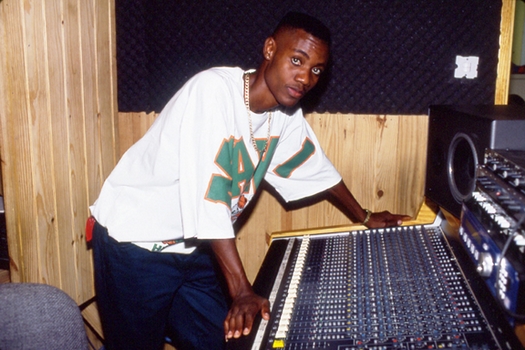 Wayne Wonder - Penthouse Studio (1993 © David Corio) Penthouse Records ruled the dancehall during the 90s thanks to a recognizable sophisticated sound. Can you describe how engineers like Dave & Tony Kelly, Steven Stanley, Andre Rookie Tyrel and artists like you elaborated this sophisticated sound ? I worked with all producers. Steven Stanley pushes the energy of an artist. Tony Kelly he is joyful, funny in the studio, so thatís a total different side as Dave is more rigid, creative flow, mad vibes. Andre Rookie Tyrel was apprentice, he went to Penthouse with his school uniform, he recorded the songs mixed after by Dave or Tony Kelly or Steven Stanley. He recorded me a lot of times. You recorded more than 70 songs for Penthouse, which ones are your favorites ? I recorded many, many more than 70 songs for Penthouse !! My favorite songs are "Movie Star", "Saddest Day", "Hold On", "You are the Reason" and "What You Gonna Do". "What You Gonna Do" was basically written on my life experience. I had some issues with my girl friend, a dj come and check me and I was saying "Iím so lonely", and that was a conversation and he said "What you gonna do". Thatís how the song came up. 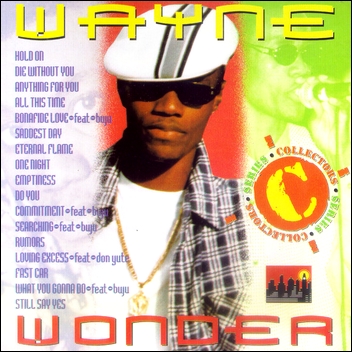 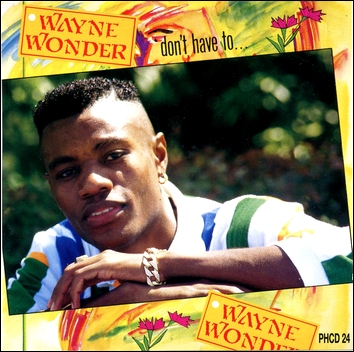 When did you leave to the USA ? I got the Green Card in 1999. I get in the system and I dont have to find no more work permit. The perfect opportunity. I took full advantage of that opportunity. What differences do you see between Jamaican and american productions ? Itís a just a mindset, being here and doing the music. When you live the music, it doesnít matter where you are. If Iím in the USA or in London and that Iím recording, the vibe is there. But at the same time, the grassroot is Jamaican. Even if weíre not there physically in Jamaica, anywhere we go, you still gonna get that Jamaican flavour. I wrote "No letting go" in New York, "Murderer" was written in an hotel room in Japan, "Deportees" was written in Antigua. You launched your own record label, Singso, in 2000. Tell us about the identity of your label and it's singularity. Singso was basically launched with artists that Dave Kelly did not any time to record or I would say that he did not give them the chance like Demo Delgado, Showki Roo, Alley Cat... Baby Cham also voiced for Singso. It was a way to express a different side of Wayne Wonder and give the youths different opportunities. Singso is still active, I have some projects soon to be released. 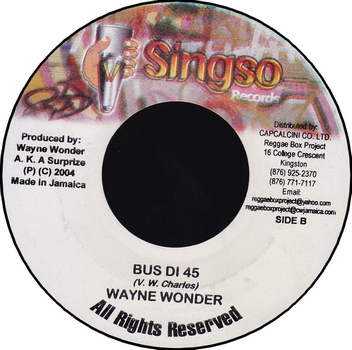 You write many love songs. Where do you find inspiration ? "Love is lovely, war is ugly". Love is lovely, itís easy to express. Your music is now a mix of reggae, dancehall, R&B, and hip-hop. Is this a natural evolution ? It was always like that. I love music, I love chord moving. Even if Iím doing Hardcore Dancehall, I always love to apply some nice chords structure. Look at "No letting go", some chords are different from the rest of the song because I wanted to apply them, I wanted an identity for the song, I wanted my song to have a bridge. I always have that flavour. All those songs like "Bounce along" for instance have nice music instrumentation around it. Iím always working that way for ever since. Remember that itís a Jamaican that created Hip Hop. You have been in the reggae industry for 35 years. What is your opinion about the evolution of the jamaican music over these years ? Always changing. If you look from that Jamaican music ska, or even before it was ska. Then Bob Marley changed Reggae, the uptempo Dancehall, itís always changing. The new generation, I know they hear it a different way. To conclude, what are your plans ? Iím working on a song called "My love is real" on Champion Squad label. I still work with some of the younger producers also. If Iím on the road, I go to the studio. If Iím at home, I have a home studio. Itís like if working is mandatory for me. 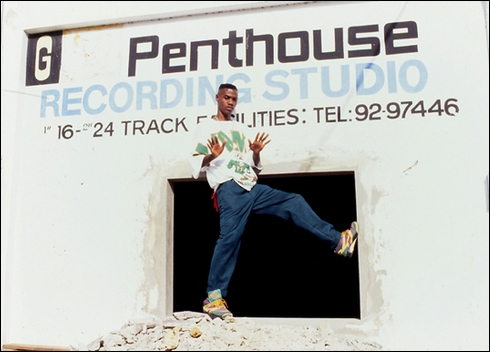 Wayne Wonder in front of Penthouse Studio (1993 © David Corio) |

